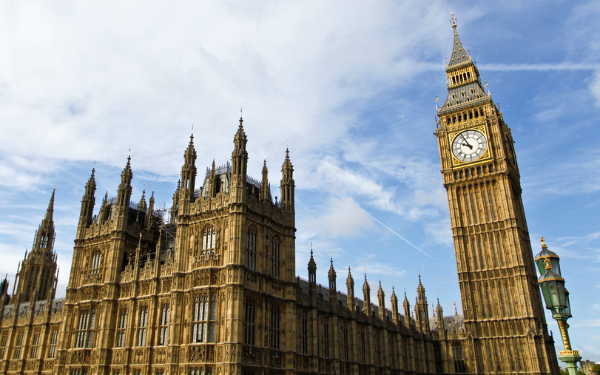News Feeds
Society | The Guardian
-
- Just Stop Oil protester, 78, released to home detention after fitting tag found
Gaie Delap had prison term extended because contractors could not find wrist strap of right size
A 78-year-old climate protester has been released on home detention curfew just a week after her prison term was extended because government contractors were unable to find the right-sized tag for her wrist.
Gaie Delap, 78, a retired teacher and Just Stop Oil protester, was sentenced to 20 months in prison for her participation in a climate protest on the M25 in 2022 and was released last November under the home detention curfew (HDC) scheme.
Continue reading... -
- How will alcohol duty changes affect the price of drinks?
Tax is to be cut on draught pints but will escalate on stronger drinks, along with an inflationary rise. Will we feel the difference?
Tax on alcohol sold in the UK is changing from Saturday, with an increase to match inflation, a cut to duty on draught pints and a shake-up in how wine is levied. So what is changing, which drinks will be cheaper and which might cost more?
Continue reading... -
- Trump’s pick for health secretary has many dangerous views – but some good ideas, too | Devi Sridhar
RFK Jr’s proposal to remove fluoride from tap water is a matter for debate. But his plans to improve school lunches and crack down on additives are laudable
The United States and Britain: two countries divided by a common language and by very different approaches to health, whether it’s how healthcare is accessed, what kind of food products are sold in supermarkets, what is advertised on TV or even what is in the water that we drink from our taps. Having lived in both countries for an extensive period, the UK, in my opinion, takes a more sensible approach to implementing pro-health and wellbeing policies, closely linked to EU regulations. But the US could soon be following suit, under a range of proposals from a surprising source: Donald Trump’s nominee for health secretary, Robert F Kennedy Jr. As I laid out last month, many of his ideas are potentially dangerous for public health – from bizarre conspiracy theories to anti-vaccineviews and campaigning – and completely divorced from data and reality. But a couple of them could turn out to be beneficial.
For example, the US still allows certain additives banned by the UK and EUto be added to ultra-processed foods such as cereals, sweets and biscuits, despite the fact that they have been linked to hyperactivity in children. Kennedy has suggested this week that he will ban some of these in food products. Depending on what exactly he does, this isn’t a radical suggestion: it may just put the US in line with what is done in other countries. It’s the same with his suggestions to regulate the advertising of pharmaceutical products and improve the nutritional quality of school meals.
Prof Devi Sridhar is chair of global public health at the University of Edinburgh
Do you have an opinion on the issues raised in this article? If you would like to submit a response of up to 300 words by email to be considered for publication in our letters section, please click here.
Continue reading... -
- What has the UK Covid inquiry learned so far about vaccines and treatments?
In fourth part of the inquiry, questons were asked about vaccine trials, procurement and the UK’s preparedness for future pandemics
The Covid inquiry has spent the past three weeks delving into the UK vaccine rollout and the decision-making around new and existing therapies for infected and vulnerable people. Here we look at the key findings from the module, the fourth of 10, in the inquiry chaired by Lady Hallett.
Continue reading... -
- ‘We’ve got rats as big as your feet’: Birmingham residents despair as rubbish piles up
Since the council declared itself bankrupt, and bin workers went on strike, the city’s streets have become clogged with bin bags and fly-tipping
As he walks through the streets of Small Heath in east Birmingham, Gerry Moynihan threads as if he is tackling an obstacle course, avoiding piled-up bin bags, dumped cars and fridges, fly-tipped furniture and discarded nitrous oxide canisters that clutter the pavements.
Residents across the city have raised alarm at the growing level of litter and fly-tipping, which they say has worsened since the Labour-run city council declared itself effectively bankrupt in 2022, and even more so since bin workers started strike action this month in a dispute over roles being scrapped to save money.
Continue reading...
Community Care
-
- Unions lodge local government pay claim for 2025-26
 Unions have lodged their pay claim for local government and school support staff in England, Wales and Northern Ireland for 2025-26. UNISON, the GMB and Unite have called for a £3,000 rise for all staff, on the grounds that council…
Unions have lodged their pay claim for local government and school support staff in England, Wales and Northern Ireland for 2025-26. UNISON, the GMB and Unite have called for a £3,000 rise for all staff, on the grounds that council… -
- Social workers could join neighbourhood teams for people with complex needs
 Social workers could form part of neighbourhood-based multidisciplinary teams (MDTs) providing support for people with complex health and social care needs. The Department of Health and Social Care (DHSC) called on NHS and local authority leaders to establish the teams…
Social workers could form part of neighbourhood-based multidisciplinary teams (MDTs) providing support for people with complex health and social care needs. The Department of Health and Social Care (DHSC) called on NHS and local authority leaders to establish the teams… -
- Council to take children’s services back in-house
 A council has voted to take back control of its children’s services, six years after it outsourced them to a company at the direction of the Department for Education (DfE). Councillors in Reading unanimously backed a proposal not to renew…
A council has voted to take back control of its children’s services, six years after it outsourced them to a company at the direction of the Department for Education (DfE). Councillors in Reading unanimously backed a proposal not to renew… -
- Should the government use AI to reform public services?
 Earlier this month, prime minister Keir Starmer announced his intention to “harness” artificial intelligence (AI) to “transform public services”. Launching the government’s AI opportunities action plan, Starmer said AI had the potential to make services “more human” by freeing up…
Earlier this month, prime minister Keir Starmer announced his intention to “harness” artificial intelligence (AI) to “transform public services”. Launching the government’s AI opportunities action plan, Starmer said AI had the potential to make services “more human” by freeing up… -
- MPs back plan to regulate agency staff use in children’s services
 MPs have backed a plan enabling the government to regulate the use of agency staff in local authority children’s services. The committee scrutinising the Children’s Wellbeing and Schools Bill affirmed the measure, without any dissent, in a debate on the…
MPs have backed a plan enabling the government to regulate the use of agency staff in local authority children’s services. The committee scrutinising the Children’s Wellbeing and Schools Bill affirmed the measure, without any dissent, in a debate on the…
HuffPost UK - Athena2 - All Entries (Public)
-
- Eating This Much Fruit And Veg Is Linked To 42% Lower Risk Of Death, And It's Not 5 A Day
-
- How Rachel Reeves Defied Critics To Become Keir Starmer's Key Ally
-
- So THAT's Why Restaurant Chips Are So Much Better
-
- Coffee May Reduce Dementia Risk, But Only If You Drink This Type
-
- I Was Terrified Of Having Twins. Then I Found Out... I Was Having Twins.
Blogs
Social Care Network | The Guardian
-
- 'Don’t expect a survivor to tell you her experience of undergoing FGM'
Specialist social workers explain how they support women and girls affected by the practice
When social worker Sam Khalid [not her real name] first began working with women affected by female genital mutilation (FGM), she found there wasn’t much awareness of the brutal practice in the UK.
She was in her first year at university, in 2011, on a placement with a Women’s Aid team. “The service I was placed in was just starting its FGM unit, and I learned about the practice and met and spoke to many survivors,” she says.
This article was amended on 12 December 2018. An earlier version referenced statistics from a recent Guardian article which was taken down after the Guardian was notified of a fundamental error in the official data on which it was based.
Continue reading... -
- We want to attract the right people with the right values to social care | Caroline Dinenage
New government recruitment campaign will raise the image and profile of the sector
This year we are celebrating the 70th anniversary of our amazing NHS, but we must not forget that adult social care is also marking 70 years. The National Assistance Act 1948 that created many of the core elements of the modern social care system came into effect on the same day as the NHS act.
In the NHS’s birthday month we have heard many stories of the dedicated nurses, doctors and support staff who have been saving and transforming lives across its seven decades. While these staff are rightly seen as the backbone of the NHS, hardworking care workers, nurses, social workers, managers and occupational therapists are, likewise, the foundation of the adult social care sector – and they have been on the same 70-year journey as colleagues in health. They are two sides of the same coin – inseparable and essential to each other.
Continue reading... -
- The UK project giving refugees another chance at childhood
Young refugees face unspeakable trauma to get here. But a cross-charity initiative is helping them to rebuild their lives
It is hard to be an adult when you feel like you haven’t had the chance to be a child.
This simple statement has stayed with me over the last 12 months of working with young refugees and asylum seekers. Among them, a 17-year-old boy forced to sleep in a railway station for months; and another who witnessed the killing of his brother and father and escaped from his home country in fear of his life.
Continue reading... -
- UN: spend an extra £5tn by 2030 to tackle global 'care crisis'
Report highlights risk of rising inequality against women worldwide
The world economy faces a looming “care crisis” risking further division between men and women across the planet, according to a UN report calling for governments and companies worldwide to spend at least an extra $7tn (£5.3tn) on care by 2030.
Making the case for spending on support for children, old people and the neediest in society to double by the end of the next decade, the UN’s International Labour Organisation (ILO) warned demographic changes alone mean the current path for care funding falls far short of requirements.
Continue reading... -
- Theresa May got it wrong with her cash boost for the NHS. Here's why
Assessing what the health service needs is essential before giving it more money to meet demand
Four key things were missing from Theresa May’s announcement of extra money for the NHS.
There was no admission that there is an NHS crisis that needs tackling. Or that money is needed now for both the the health service and social care. Without this emergency cash injection, there will be insufficient time and resource to make the necessary preparations to avoid a repeat – or indeed worsening – of last year’s winter crisis in the NHS and social care with the trail of waits, delays, suffering and extra deaths that accompanied it.
Continue reading...
- Feed not available.
Opinion | The Guardian
-
- Heathrow’s third runway, Rachel Reeves and the pursuit of growth | Letters
Readers respond to the chancellor’s intentions, voicing their concerns about the climate and driving ‘growth’
The proposed Heathrow expansion is hard to fathom at a time when the world is suffering catastrophic climate events (Scepticism in Whitehall that Heathrow plan can be reconciled with climate targets, 29 January). I have defended Labour up to now among family and friends who feel let down by the failure of Rachel Reeves to tax the super-wealthy in a fairer way to help fund vital services that were so eroded by the Tories.
The Heathrow expansion is so clearly out of step with what we should be doing, and such a betrayal of Labour’s election campaign to be a conserver of the environment, that I feel the party will be significantly damaged by it.
Continue reading... -
- Israel’s ban on Unrwa in Gaza and the West Bank is inhumane | Letters
Stephen McCloskey condemns the ban, while Bernie Evans condemns western leaders for not standing up to protect Palestinians
Re your editorial (The Guardian view on the future of Gaza: Trump is threatening already frail hopes, 28 January), I have witnessed the professionalism and dedication of Unrwa staff, the majority of whom are Palestinian, in all five fields of their operations (Gaza, the West Bank, Jordan, Lebanon and Syria).
Since 7 October 2023, at least 243 of the 13,000 Unrwa staff working in Gaza have lost their lives, which is the highest ever in a single crisis. Unrwa services in health, education, welfare, food aid, microfinance and social services are critical for Palestinian refugees and these services have been mandated by the UN general assembly.
Continue reading... -
- Accept that tube seat graciously, Zoe | Letter
If someone is rebuffed, they may not offer a second time, writes Barbara Foster
I have been a fan of Zoe Williams for years. She acts decisively, while I hover between alternatives. But sorry, Zoe, you got it wrong in refusing a seat offered to you on the tube (A stranger offered me a seat on public transport – and it’s thrown me into crisis, 28 January).
Many years ago when I was a mere 62-year-old, a young man offered me a seat on the tube, and I politely declined. My husband told me off later: I had been ungracious and maybe the young man would never bother to be so considerate to anyone else in the future. I had to agree, I got it wrong.
Continue reading... -
- Trump’s pick for health secretary has many dangerous views – but some good ideas, too | Devi Sridhar
RFK Jr’s proposal to remove fluoride from tap water is a matter for debate. But his plans to improve school lunches and crack down on additives are laudable
The United States and Britain: two countries divided by a common language and by very different approaches to health, whether it’s how healthcare is accessed, what kind of food products are sold in supermarkets, what is advertised on TV or even what is in the water that we drink from our taps. Having lived in both countries for an extensive period, the UK, in my opinion, takes a more sensible approach to implementing pro-health and wellbeing policies, closely linked to EU regulations. But the US could soon be following suit, under a range of proposals from a surprising source: Donald Trump’s nominee for health secretary, Robert F Kennedy Jr. As I laid out last month, many of his ideas are potentially dangerous for public health – from bizarre conspiracy theories to anti-vaccineviews and campaigning – and completely divorced from data and reality. But a couple of them could turn out to be beneficial.
For example, the US still allows certain additives banned by the UK and EUto be added to ultra-processed foods such as cereals, sweets and biscuits, despite the fact that they have been linked to hyperactivity in children. Kennedy has suggested this week that he will ban some of these in food products. Depending on what exactly he does, this isn’t a radical suggestion: it may just put the US in line with what is done in other countries. It’s the same with his suggestions to regulate the advertising of pharmaceutical products and improve the nutritional quality of school meals.
Prof Devi Sridhar is chair of global public health at the University of Edinburgh
Do you have an opinion on the issues raised in this article? If you would like to submit a response of up to 300 words by email to be considered for publication in our letters section, please click here.
Continue reading... -
- Time to blow the whistle on abuse of football referees | Letters
Commentators and managers should stop concentrating on ‘wrong’ decisions, writes Michael Peter Wood; plus a letters from David Head and Jody Dawson
Isn’t it time to blow the whistle, stop the negative criticism of referees’ decisions and focus on the game being played (‘Let’s get this hatred out of football’: Mikel Arteta on threats against referee, 28 January)? Commentators, pundits, managers and coaches spend too much time talking about what they consider to be wrong decisions instead of giving a critique of the game itself. This fuels anger and frustration among some supporters, and leaves referees out on a limb with little or no support, suffering vile social media abuse.
Michael Peter Wood
Broadhempston, Devon• Arsenal’s Mikel Arteta is to be applauded for urging football to kick hatred out of the game. Will he now ask his club’s supporters to abandon their routine “Stand up, if you hate Tottenham” chant? Please note: I write as an Arsenal supporter who finds this tradition embarrassingly boorish. The truly modern Gooner is better than this.
Continue reading...
David Head
Malmesbury, Wiltshire
